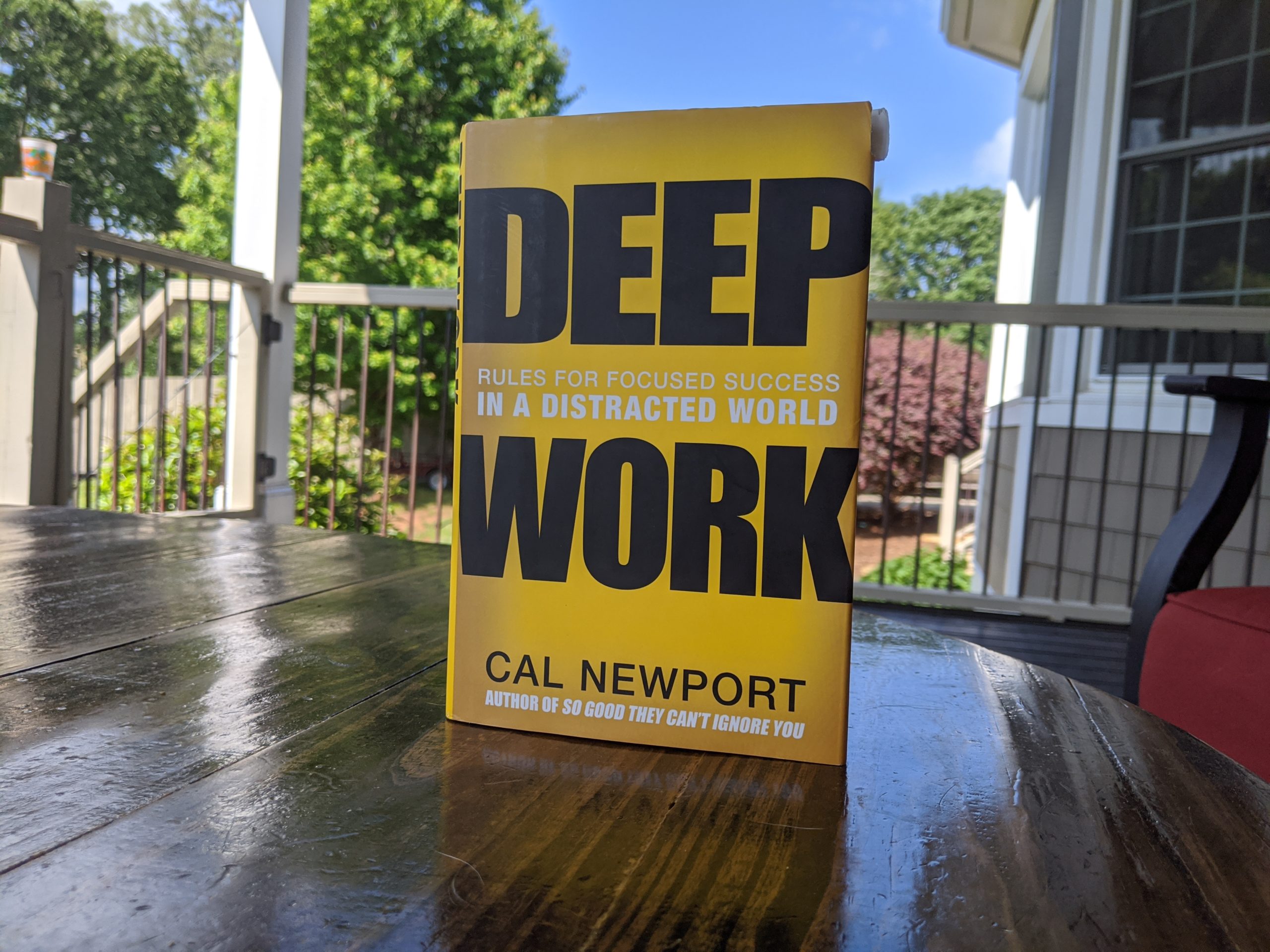I’m reading Deep Work by Cal Newport.
Actually, I should say re-reading. I already read it once a year or so ago, but I did so at a time when I was very busy and I don’t feel I got as much out of the book as I should have, so I’m giving it another go. I really like several of Cal’s other books, so I want to make sure I give this one as much of my attention as possible. Thus, re-reading.
The premise of the books is basically this:
We spend far too much time in a state of shallow multitasking where busyness is used as a stand-in for actual productivity. At the same time, we spend far too little time deeply focused, for hours on end, on the difficult and important tasks that genuinely add value.
I agree with the premise wholeheartedly. However, I’m trying to decide to what degree the premise applies to me personally and how I should adjust my work routines in response.
Not All Roles Are the Same
I can see how going deep–being deeply focused and shunning all distraction–could be something of a secret weapon to boost productivity for developers, engineers, designers, writers, editors, and anyone else who delivers a quantifiable work product. What I’m less convinced is that deep work is as directly relevant for managers whose primary responsibilities are decision-making.
Cal addresses this concern head on starting on page 44 of the book in a section titled “What about Jack Dorsey?”
If you don’t know, Jack Dorsey is the founder of both Twitter and Square. What’s interesting about Jack is that he doesn’t engage in very much deep work. He works in shared office spaces where he welcomes interruptions, has tons of meetings, and generally bounces from conversation to conversation all day (at least, this was true in pre-COVID times).
Jack Dorsey is “someone who does not spend a lot of time in a state of deep work.” Yet, he’s obviously tremendously successful. According to Cal, the reason for this is that Jack’s role is pretty unique in that he’s effectively “a hard-to-automate decision engine”.
Cal goes so far as to acknowledge that folks in executive leadership roles of this ilk generally do not need to engage in very much deep work in order to be successful. Their roles require them to engage in continuous conversation and decision making rather than in the delivery of a quantifiable work product.
Am I a Hard-To-Automate Decision Engine?
Obviously, I’m no Jack Dorsey. I’m many miles from being Jack Dorsey.
However, a lot of what my job entails seems to be the antithesis of deep work. You could summarize my job as follows:
Keep an eye on everything that’s happening at the company. Ferret out inefficiencies. Ensure that every department operates in alignment with the company’s priorities and goals.
In terms of day-to-day tasks, that means I spend a lot of time checking in on conversations in Slack, and attending meetings (ad hoc and scheduled) to assist and advise various executives and managers with operational and organizational issues.
These sorts of tasks are really the antithesis of deep work.
At the same time, I do have some tasks which will benefit from focus:
- Sitting down and writing out company priorities is a time-consuming task that requires careful thought.
- Writing up announcements for the company at large is deep work.
- Planning for things like companywide all-hands calls requires focus and time.
- Thinking through a difficult conversation in advance requires some time spent free of distractions.
- Thinking through sticky operational or organizational challenges requires that I stop and spend time in thought.
In other words, it seems to me that I handle a mix of tasks. Some of which fit the “decision engine” model and others that require focus and deep work.
Balancing Deep Work and Decision Engine-ing
One of the most difficult parts of my job is figuring out how to balance tasks that need a deep work approach against those that require a more conversational approach.
- I need to be available to other executives and managers to assist with their operational and organizational challenges.
- I need to keep my finger on the pulse of day-to-day operations to make sure we aren’t engaged in massive inefficiencies or operating in ways that are out of alignment with our implicit values.
- At the same time, on a regular basis I need to set aside time for deep work so that I can think and write as effectively as possible.
More Issues, Just for Good Measure
Another way that deep work and conversational work compete with each other for time on my calendar has to do with timezones.
I discovered long ago that my brain does its best deep work first thing each day. My most productive time each day, in terms of maximum mental energy, is generally roughly 8:30-11:30 AM. It would be ideal for me to be distraction-free during this window every day.
However, half of our company works in Europe, which means the first half of each day is generally spent in meetings, and the second half of the day (when I’m digesting lunch and trying to stay awake) is when I might have a shot at getting in some deep work.
Questions Without Answers
I don’t have any answers to the questions raised in this post.
Today’s post is mostly about organizing my thoughts–doing the deep work of thinking about the degree to which I should better integrate deep work into my schedule.
The answers are yet to come. When they do, I’ll update this post with a link. I’m sure you’re dying to know what I figure out.
